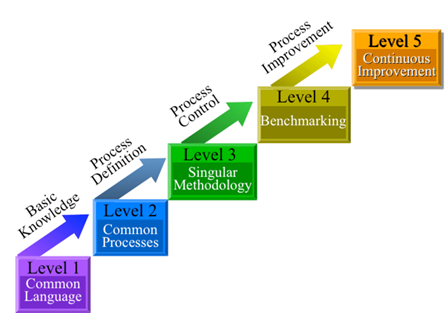By: Kimberley Nash, Association Manager – TouchPoint AMC
Many people are not aware that project management is a widely used formal methodology, and despite the frequently generic nature of their title, Project Managers are specifically trained to use the methodology to perform their work. But do that methodology and training fit with a Not-For-Profit (NFP) association’s operations and efforts?
If you look on LinkedIn or other career sites, you’ll often find postings for Project Managers or other roles requiring project management skills from candidates. However, if the posting is for a position in Association Management, it’s not often clear how project management skills are defined or how they would be implemented in the candidate’s day-to-day job. What is project management? Do NFPs need formally trained Project Managers? Let’s look at what project management is, whether its practices can be implemented in NFPs, and which project management skills can be used effectively in these enterprises.
What are Projects and Project Management?
Let’s start at the beginning. According to the Guide to the Project Management Body of Knowledge, 6th ed. (PMBOK 6):
A project is a temporary endeavor undertaken to create a unique product, service, or result. Projects are undertaken to fulfill objectives by producing deliverables. An objective is defined as an outcome toward which work is to be directed, a strategic position to be attained, a purpose to be achieved, a result to be obtained, a product to be produced, or a service to be performed. A deliverable is defined as any unique and verifiable product, result, or capability to perform a service that is required to be produced to complete a process, phase, or project. Deliverables may be tangible or intangible.”1
Project management is a methodology consisting of techniques, knowledge, skills, and tools that has evolved to manage the successful planning and execution of projects, and, in companies where the majority of work is project-based (such as engineering or information technology), the companies have centred company-wide processes and planning on the methodology. Effective project management improves the likelihood of success in meeting all project and business objectives; managing resources, risks, and changes; avoiding problems and overruns; and satisfying stakeholders.
Can Formal Project Management Methodology Work in a NFP?
Many different sizes and types of firms use project management practices to some degree – they may have developed common language or processes for their work, even if they have not formally adopted the methodology, and although not formalized, their goal is to improve their practice with each project they complete.
Fig. 1 – Kerzner’s Project Management Maturity Model2

Where does your organization fit on this scale?
Not all enterprises are suited to a formal project management system. In my project management coursework, I had the opportunity to work on a group study of the characteristics that might predict how successful the implementation of project management methodology in different types of organizations would be, and we identified several characteristics suggesting that project management methodology would be hard to implement in a NFP, particularly a small one.
1) Structure: Project management methodology favours the efficiency of centralized hierarchical management and decision-making authority. However, in a member organization, decision-making is collective: there is a limited hierarchy in a Board, while Executive Directors or Operations Managers answer to Boards, who are themselves answerable to members. Ultimately, the approval process in NFPs can be a barrier to the timely and successful completion of projects, and timelines should be planned with that approval process in mind.
2) Perception of Value: Since NFP budgets are mostly derived from member fees and sponsor revenue, the organization may not have the resources to devote to hiring or training specialized staff or buying expensive software for a niche management function. Projects may be undertaken infrequently in NFPs, so they may not be able to make a case to stakeholders to transition operations to centre on the methodology. Particularly, they may not be able to rationalize allocating resources to acquire specialized staff or tools when projects may be too infrequent to justify the investment.
3) Volunteer Culture: Since the volunteers so crucial to the efforts of NFPs often get involved in them as passion projects, or for social or business networking opportunities, a culture of informality can exist that may distrust the methodology’s formalism and instead prefer relatively casual group work to achieve organizational goals. Such a NFP that implements formal project management methodology could find it hard to recruit and retain volunteers.
4) Volunteer turnover may also lead to the loss of expertise and organizational learning that would be applied from project to project and incorporated into a NFP’s strategic planning.
Does this mean that NFPs can’t use project management at all? Of course it doesn’t! There are many skills, tools, and practices that can be applied in NFPs to improve the outcomes of their activities and efforts.
What Kinds of Efforts in an NFP Can Use Project Management Practices?
Since projects are by definition time-limited and temporary, regular operations are not projects. But NFPs regularly undertake efforts that meet the definition of a project; these may include:
– Conferences
– Seminars/Webinars
– Newsletters & magazines
– Specialty publications & manuals
– Fundraising events
– Special meetings
– Strategic planning
– Research projects
– Executive search
In our next article, we’ll look at specific project management skills and practices that can be used in a NFP.
End notes:
1. Project Management Institute (2017), A Guide to the Project Management Body of Knowledge (PMBOK guide), Sixth Edition; Project Management Institute, Pennsylvania, Sec 1.2.1
2) Kerzner, H. (2001), Strategic Planning for Project Management Using a Project Management Maturity Model, John Wiley & Sons, Inc., New York, p. 42
